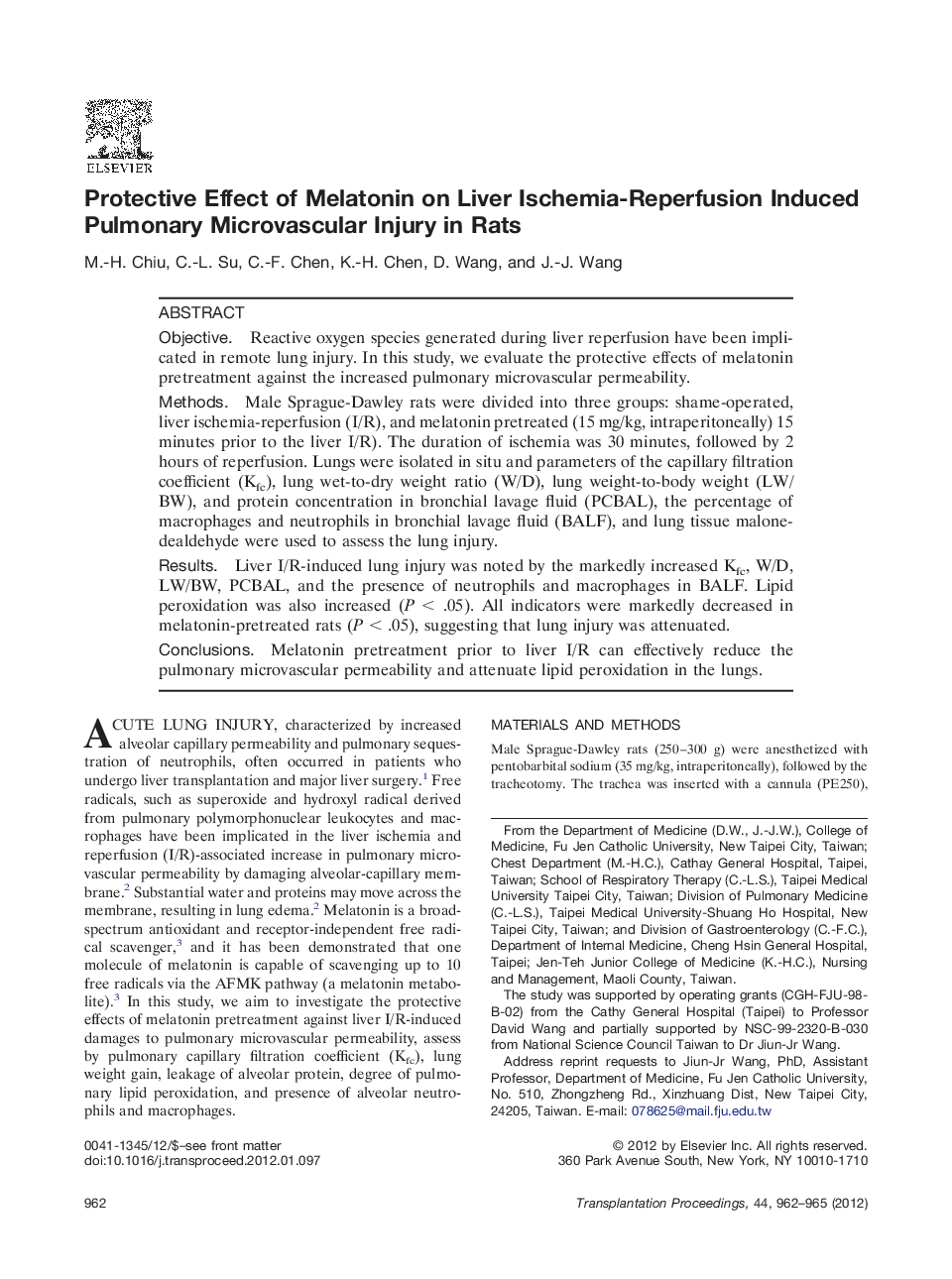| Article ID | Journal | Published Year | Pages | File Type |
|---|---|---|---|---|
| 4256835 | Transplantation Proceedings | 2012 | 4 Pages |
ObjectiveReactive oxygen species generated during liver reperfusion have been implicated in remote lung injury. In this study, we evaluate the protective effects of melatonin pretreatment against the increased pulmonary microvascular permeability.MethodsMale Sprague-Dawley rats were divided into three groups: shame-operated, liver ischemia-reperfusion (I/R), and melatonin pretreated (15 mg/kg, intraperitoneally) 15 minutes prior to the liver I/R). The duration of ischemia was 30 minutes, followed by 2 hours of reperfusion. Lungs were isolated in situ and parameters of the capillary filtration coefficient (Kfc), lung wet-to-dry weight ratio (W/D), lung weight-to-body weight (LW/BW), and protein concentration in bronchial lavage fluid (PCBAL), the percentage of macrophages and neutrophils in bronchial lavage fluid (BALF), and lung tissue malonedealdehyde were used to assess the lung injury.ResultsLiver I/R-induced lung injury was noted by the markedly increased Kfc, W/D, LW/BW, PCBAL, and the presence of neutrophils and macrophages in BALF. Lipid peroxidation was also increased (P < .05). All indicators were markedly decreased in melatonin-pretreated rats (P < .05), suggesting that lung injury was attenuated.ConclusionsMelatonin pretreatment prior to liver I/R can effectively reduce the pulmonary microvascular permeability and attenuate lipid peroxidation in the lungs.
